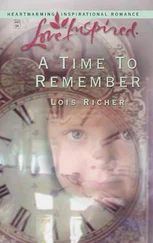Alexander Todd - A Time to Remember
Здесь есть возможность читать онлайн «Alexander Todd - A Time to Remember» весь текст электронной книги совершенно бесплатно (целиком полную версию без сокращений). В некоторых случаях можно слушать аудио, скачать через торрент в формате fb2 и присутствует краткое содержание. Город: Cambridge, Год выпуска: 1983, ISBN: 1983, Издательство: Cambridge University Press, Жанр: Химия, Биографии и Мемуары, на английском языке. Описание произведения, (предисловие) а так же отзывы посетителей доступны на портале библиотеки ЛибКат.
- Название:A Time to Remember
- Автор:
- Издательство:Cambridge University Press
- Жанр:
- Год:1983
- Город:Cambridge
- ISBN:0 521 25593 7
- Рейтинг книги:3 / 5. Голосов: 1
-
Избранное:Добавить в избранное
- Отзывы:
-
Ваша оценка:
- 60
- 1
- 2
- 3
- 4
- 5
A Time to Remember: краткое содержание, описание и аннотация
Предлагаем к чтению аннотацию, описание, краткое содержание или предисловие (зависит от того, что написал сам автор книги «A Time to Remember»). Если вы не нашли необходимую информацию о книге — напишите в комментариях, мы постараемся отыскать её.
A Time to Remember — читать онлайн бесплатно полную книгу (весь текст) целиком
Ниже представлен текст книги, разбитый по страницам. Система сохранения места последней прочитанной страницы, позволяет с удобством читать онлайн бесплатно книгу «A Time to Remember», без необходимости каждый раз заново искать на чём Вы остановились. Поставьте закладку, и сможете в любой момент перейти на страницу, на которой закончили чтение.
Интервал:
Закладка:
There was quite a discussion at one point about a motto for the college, and it was decided that between two meetings a paper should be sent to all the Trustees, on which they were asked to write their proposal for a motto. As it went to the Trustees in alphabetical order, I was able to see the proposals of all the rest except Weeks before adding my own. At the outset I was barren of ideas, but when I looked at the complicated, and in some cases extremely verbose, proposals of my colleagues - mainly in Latin - I simply wrote the single word 'Forward'. Tedder, who was our Vice-Chairman almost accused me of levity, but when, in due course, the paper was given to Sir Winston he looked at it, grunted and then growled 'What's wrong with "Forward" ?' And so Churchill College got its motto.
The appeal was formally launched on 15 May 1958. As donations were to come to Cambridge I was authorised to send Ron Purchase round to Barclays Bank in Bene't Street to open an account. According to him he went to the bank and asked if he could see the manager. He was told politely that the manager was busy, and was asked why he wanted to see him. 'I want to open an account,' said Purchase. 'Come, come,' was the reply, 'you don't need the manager for that - one of the tellers will do it for you. What kind of account do you want?' 'Well,' said Purchase, 'it is a little bit complicated; you see I want to open it with a million pounds.'
There was a moment of stunned silence - and Purchase saw the manager.
Looking back at it after some twenty years, I am struck by the smoothness with which the whole operation was carried through. Everyone worked really hard and cooperatively, and I think particular credit goes to Jock Colville whom I consider to have been the mainspring of the whole project. I am proud to have been associated with the project and with him.
I contrived to avoid the hectic days following the public launching of the Churchill College appeal by going off to conduct the honours examinations in chemistry at the University of Malaya in Singapore, and the University of Hong Kong. This was my first visit to South-East Asia, apart from a one day stopover in Singapore on my way to Australia in 1950. I enjoyed it hugely - so much so that, over the years since then, I have taken increasingly to visiting it, and especially that fascinating and beautiful place, Hong Kong. The Malayan part of my 1958 visit was not without excitement. Before leaving London I had been asked by our government to discuss certain matters with the Tunku Abdul Rahman on my way to Singapore. I duly alighted from the intercontinental plane at Kuala Lumpur, stopped the night at a hotel not far from the spectacular railway station of that city, and saw the Tunku the following morning at his residence. After the meeting there was a lunch party during which one of the Malayan military attaches asked me what I was doing after lunch. I told him I was taking a plane to Singapore, whereupon he said he was driving down to Singapore that afternoon, and would be glad of my company if I would like to see something of Malaya. I accepted with alacrity, cancelled my plane reservation, and set off to the south with the attache who was driving his own car.
A mile or two north of Seremban we were overtaken by a tropical thunderstorm and our windscreen wiper packed up. As more such storms were quite likely at that time of year, we decided to stop at Seremban and have the wiper put right. While the repair was being made, we retired to the local rest-house and had a drink or two. The repair took rather a long time, and when we set out again dusk was fast approaching. As we drove south through alternating jungle and rubber plantations, I noticed that the vegetation had been cut back so as to leave a strip of twenty-five yards or so of open ground on either side of the road. I realised that this had been done to lessen the chance of an ambush by bandits, who had not yet been completely eliminated from the Malayan scene, but thought no more of it. Soon it was quite dark, and, as we drove on and on, I couldn't help noticing that the road was deserted; no peasants with donkeys or goats, such as usually abound, were to be seen. I also became aware that my friend the attache was getting a bit worried, and was increasing his speed, thereby considerably diminishing our comfort. After what seemed quite a long time we came over the brow of a hill, and there, on the hillside on the opposite side of the valley in front of us, were the flickering lights of a small village or town. 'Thank God!' said my companion, 'Yong Peng at last.' Just at that moment a cluster of lights shot up into the sky above the village, 'Ah,' said I, 'we are just in time for a Chinese wedding or funeral!' 'I'm not so sure about that - they look like Verey lights,' said the attache, and with that he accelerated and we shot down the hill and up the other side. Before we got to the village there was a burst of machine gun fire in the jungle to our right, but we were unscathed and pulled up in front of a massive wooden gate barring entry to Yong Peng. We made a bit of noise, whereupon the gate opened slightly and a Malay soldier put his head out and asked us our business. Satisfied, he opened the gate sufficiently to let us in then closed and barred it again before taking us to see his commander in a nearby house. The commander, a young officer, told us that we had arrived just as a battle was about to begin, and that we would have to stay in Yong Peng till it was over. Apparently the authorities had learned, through informers, that on this particular night the local bandits planned to attack Yong Peng to replenish their food supplies, and the army had arranged to move in a detachment of soldiers secretly so as to give the bandits a warm welcome. We had arrived just as the first bandits had emerged from a nearby rubber plantation - hence the Verey lights - and firing had begun. The commanding officer was very apologetic, and suggested that we leave our car at the command post and proceed down the main street where we would find a bar at a Chinese hotel called the White House; there, he suggested, we should have a drink and wait until the battle was over.
We took his advice and sat down on the verandah on the street frontage of the White House, which effectively shielded us from the back garden, at the bottom of which a couple of soldiers were ensconced taking occasional pot shots in the direction of the rubber trees. In front of us there was, of all things, a juke-box which two urchins kept feeding with coins, so that the night was filled with the strains of 'See you later, alligator' punctuated, from time to time, with small arms fire from the direction of the back garden. About two hours, and most of a bottle of whisky later, the shooting had ceased, and the commander said we could leave now, although it was clear that he wasn't too happy about it. He offered us an armoured car escort, but my companion would have none of it. If we had an escort (so he said) we would certainly be ambushed, whereas, if we went on our own, the bandits wouldn't bother us. The commanding officer kindly said he would telephone the towns and villages we would have to pass through on our way so that they would expect us and so open the gates to let us through. So off we set again and reached Singapore in the small hours, our journey being without further incident apart from an encounter with a large pig near Johore Baru. There was an amusing sequel to all this when I went along to breakfast at my Singapore hotel next day. In the dining room I met a young British lieutenant, the son of a friend in England. He was surprised to see me, and asked how long I had been in Malaya. I said I had only arrived in Singapore a few hours before after an encounter with bandits at Yong Peng. At this he expressed great indignation, holding that it was totally unfair that he should have been four months in Malaya looking for bandits without success, and here was I in touch with them within twenty-four hours of my arrival.
Читать дальшеИнтервал:
Закладка:
Похожие книги на «A Time to Remember»
Представляем Вашему вниманию похожие книги на «A Time to Remember» списком для выбора. Мы отобрали схожую по названию и смыслу литературу в надежде предоставить читателям больше вариантов отыскать новые, интересные, ещё непрочитанные произведения.
Обсуждение, отзывы о книге «A Time to Remember» и просто собственные мнения читателей. Оставьте ваши комментарии, напишите, что Вы думаете о произведении, его смысле или главных героях. Укажите что конкретно понравилось, а что нет, и почему Вы так считаете.










